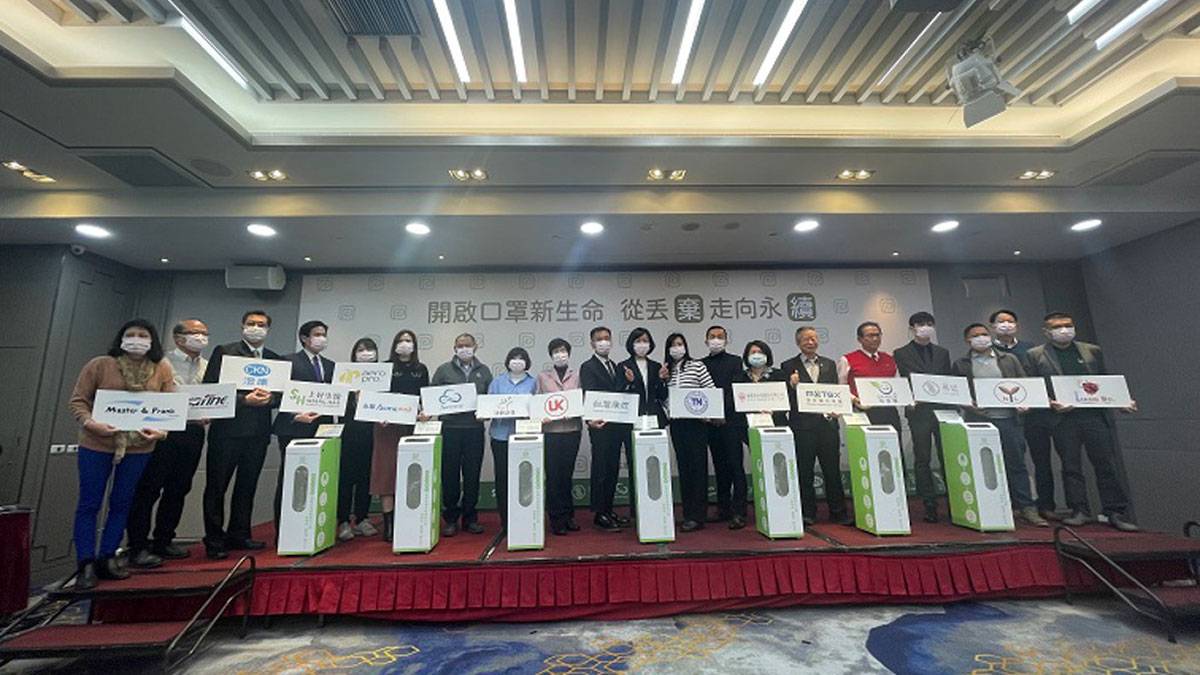Responding to the recyclable mask label, Dai Xiuling, the general manager of KANAXA Corporation, pointed out during the press conference that, during the pandemic, the government's call brought together mask manufacturers to form a national team, uniting against the epidemic. Currently, masks are treated as general waste, and the only disposal method is incineration. According to statistics, 5 billion masks enter the oceans worldwide every month. As a mask manufacturer producing masks to protect public health, it is disheartening that masks contribute to environmental pollution in oceans. The industry hopes for better options for masks, even extending the product life cycle, ending the public's misunderstanding of disposable goods. After responding to this project, materials from production waste, defective products, and used masks can be recycled, making full use of resources, reducing the use of new plastics, and contributing positively to corporate ESG (Environmental, Social, Governance) practices.
Regarding the recycling process, measures are taken to ensure that masks of different materials do not mix in the recycling bins. Collection bins are marked to indicate that only masks with the label can be recycled. Recycling operators also inspect and separate masks without labels for appropriate disposal. Fully recyclable masks made of all-plastic encourage uniformity in mask materials, adding a slight cost but making recycling and reprocessing possible. This represents the first step for the non-woven fabric industry in reducing waste and lowering carbon emissions.

